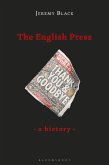The press gang, and its forcible recruitment of sailors to man the Royal Navy in times of war, acquired notoriety for depriving men of their liberty and carrying them away to a harsh life at sea, sometimes for years at a time. Nicholas Rogers explains exactly how the press gang worked, whom it was aimed at and how successful it was in achieving its ends. He also shows the limits to its operations and the press gang's need for cooperation from local authorities, who were by no means prepared to support it.
Written by an expert in the social history of eighteenth-century Britain, it is both well-researched and highly readable.
Written by an expert in the social history of eighteenth-century Britain, it is both well-researched and highly readable.









